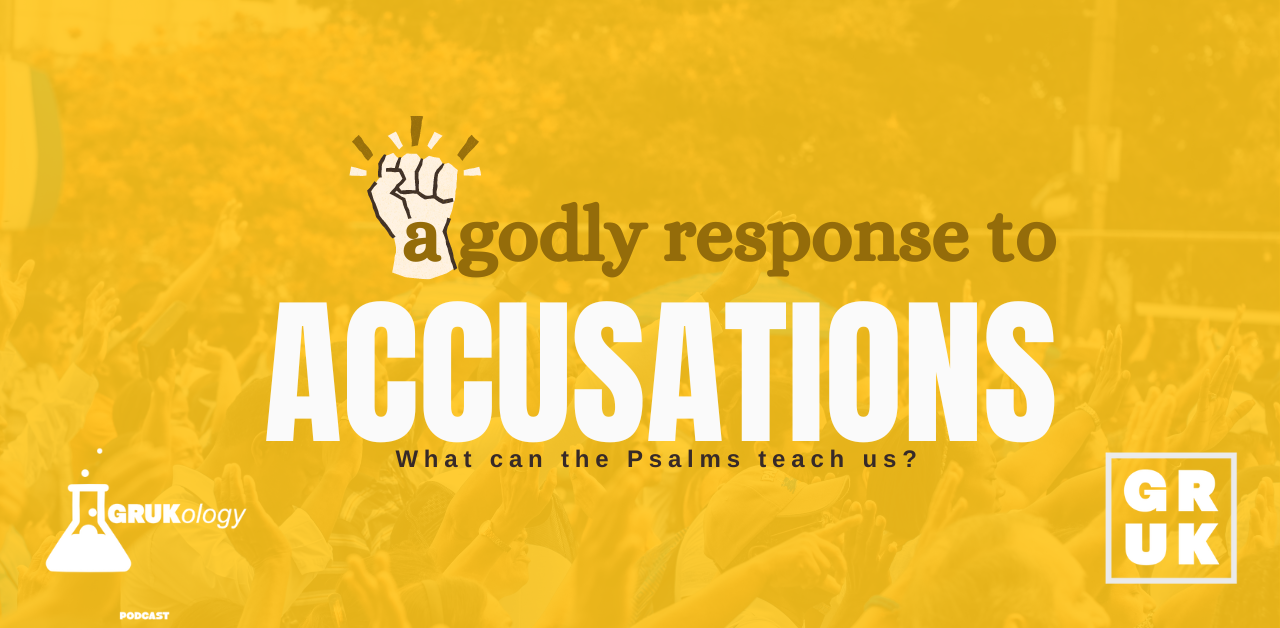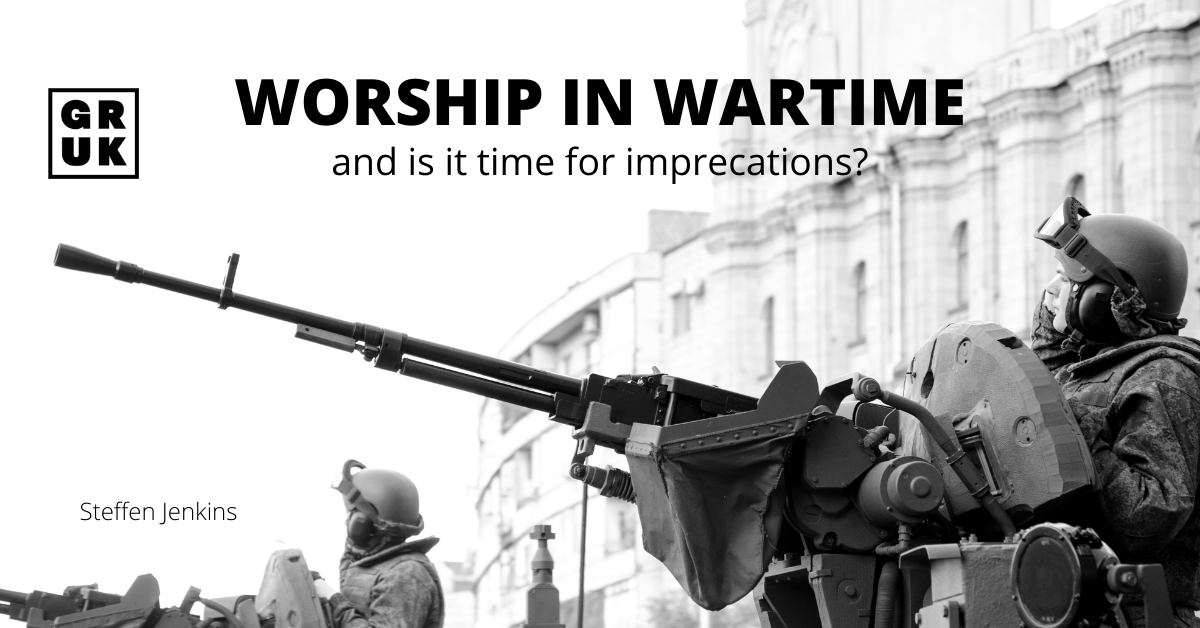Unprecedented? Lockdown in Psalm 1
by Steffen Jenkins
We keep hearing that lockdown is unprecedented. I will not discuss the usual suspects: this piece is not about civil liberties. It is about the idea that something “unprecedented” has happened to the church. We have been prevented from normal, physical, corporate meetings and thereby locked out, at least to some extent, from the embodied means of grace. Is this a genuinely new thing under the sun?
It is a truism that the book of Psalms contains a summary of the whole of the Bible (Luther) and addresses, at least generally, every situation the Christian and the church could face (Calvin) and teaches us to face any and all trouble (Athanasius). It would be a surprise if lockdown had wrongfooted the Psalms.
You only need to read the very opening of the Book of Psalms to find a prescription for lockdown.
A book for lockdown: Psalm 1:3–4
The psalm promises that you will be planted like a tree by streams of water. Read through the rest of the book and you will find this imagery in two opposite contexts: either in the temple courts (52:8; 92:12–14) or after the destruction of the temple, by the canals of Babylon, with singers using trees to stow their instruments away (137:1–2). The very use of planted is again suggestive, since it mostly appears in OT parables that talk of Israel being uprooted out of the land and then brought back again (Ezek 17; 19; Jer 17; Hos 9). You can read more about the temple allusions in the work of Jerome Creach, Sue Gilligham or Bernd Janowski, but the point is that Psalm 1 is devoid of the temple.
Perhaps David wanted to prepare Israel for the promised exile of Deut 29, or someone like Nehemiah took this Psalm and placed it suggestively after the exile. Either way, as Jewish exegetes note, it presents the Psalms as a resource for exile and persecution.
Is lockdown hard for the church? Yes, but it is hardly the Babylonian deportation. The exiles were cut off from the only known means of grace. Most alarmingly, the only place where sacrifices for sin could be offered was at the sanctuary in Zion (Deut 12:5–7). Whether you feel that the means of grace have been diminished or are entirely absent during lockdown, the exile makes it hard to claim that we are living in an unprecedented situation.
God alone saves: Psalm 1:5–6
Even in the exile, the Lord would somehow keep the blessed man until the day of reckoning (v5). The very fact that he could, reminds us of a Protestant distinction which we must not lose.
The means of grace are necessary for salvation. They are not absolutely necessary for salvation. If your neighbour professes faith in Christ, and a SWAT team prevents you from baptising her, then see, e.g. WCF XXVIII.vi. God is the missionary who is never thwarted. He still knows the way of the righteous. He ensures that it is only the way of the wicked that will perish (v6). He can save whomever he wants, however he wants, whenever he wants. “God in his ordinary providence makes use of means, yet is free to work without, above, and against them, at his pleasure.” (WCF V.iii)
That word “ordinary” captures this Reformation distinction and makes all the difference in this trial.
“The grace of faith, whereby the elect are enabled to believe to the saving of their souls, is the work of the Spirit of Christ in their hearts, and is ordinarily wrought by the ministry of the word: by which also, and by the administration of the sacraments, and prayer, it is increased and strengthened.” (WCF XIV.i)
If you think that zoom meetings are no meetings at all, so that there can be no corporate ministry of the word, sacraments, prayer, fellowship, then these are still only ordinarily the means by which Christ saves and keeps his people. Yet the Psalms open by reminding us of a time when we could not even zoom into the temple, and still offers salvation. Israelites were born and then died in Babylon without even the theoretical possibility of offering sacrifices for sins. How were they saved?
Psalm 1 points us forward to our final bliss: Jesus will be like a tree, spanning the river of life, with seasonal fruit (Rev 22), and there will be no temple and no means of grace (Rev 21). However, even to the exiles, it would have called to mind Adam, a man divinely planted by streams of water and surrounded by fruitful trees in Gen 2. There was no temple, just unmediated fellowship with God. Psalm 1 answers the question: “could such blessing be available away from the temple, in Babylon?”
God’s word to you (Psalm1:1–2)
The answer is yes, and that blessing is found by anyone who: “his delight is in the law of the Lord, and on his law he meditates day and night.” ‘Law’ here is broader than commandments: God’s entire teaching and instruction. God’s written word.
This does not only point us to Christ, in whom we have our alien righteousness. It also showed the exiles, and tells us, how to remain in Christ when the ordinary means of grace are absent. The answer is reading God’s word.
Chew over the written word about the enfleshed word. Internalise and think about the Bible, your Saviour’s word to you.
If you are a minister, do not “preach from” the Bible.
Please do not look at your to-do list on Monday, see “write sermon” and reach for the Bible as the tool you need. God’s word is not sermon fodder. The law of the Lord is his word to you about his Son. It is in his word that the exiles, by the work of the Spirit, were able to be blessed without the temple. It is in his word that we, by the same Spirit, are brought into and kept in Christ, even without (or with impaired) means of grace.
In exile and in lockdown, the ones who trust in Christ experience the blessing of communion with him. How? In Scripture, whether you read it to yourself, or remember it from memory, or have someone read it to you.
Please do not stand in the pulpit during lockdown as an administrator of the means of grace who has turned a page of Bible into a sermon for others by the professional process of exegesis. Stand as an example of saving faith. Stand as one who has spent the week meditating on the word of God and who knows that this is enough to be kept by Christ. Commend receiving Jesus, and remaining in Jesus, by the means that are available in lockdown and in any crisis that could possibly land on us. That means is God’s word. So preach God’s word as though it were worthy of reading and meditating on.
For the Lord knows the way of the righteous.
Steffen Jenkins lectures in Old Testament at Union School of Theology in Wales, at a learning community near you, or wherever you happen to be. The above is adapted from a forthcoming book on prayers for vengeance within the Book of Psalms.









